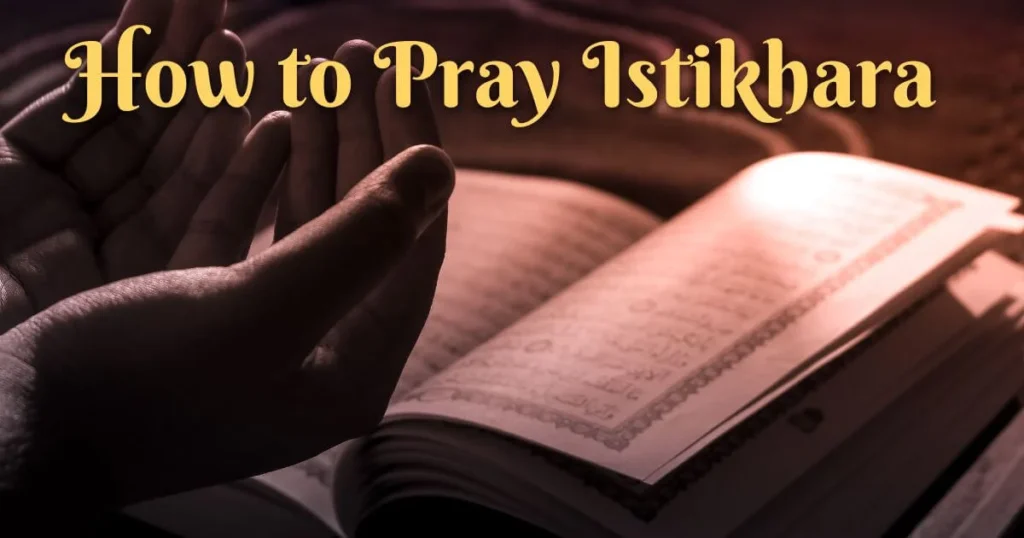
When we face an important choice—marriage, a job, moving house, or any big decision—our hearts often feel confused. Islam gives us a beautiful, simple method to ask Allah for guidance: Salat al-Istikhara (the prayer for seeking the good and guidance). It is a sunnah practice taught by the Prophet ﷺ to help a believer ask Allah to choose what is best. Below is a clear, step-by-step guide on how to perform it, plus practical advice on what to do after you pray.
What is Istikhara?
Istikhara literally means “to seek that which is good” from Allah. The Prophet ﷺ taught his companions to use a short prayer and du‘a when they were unsure about a matter. It is not magic — it is sincere turning to Allah, relying on Him, and asking for ease or clarity.
The Qur’an reminds us to rely on Allah:
“And whoever relies upon Allah — then He is sufficient for him.” (Surah At-Talaq 65:3)
With istikhara we combine prayer, supplication, and trust.
When to Make Istikhara
Make istikhara whenever you must decide something important and you feel unsure. It’s recommended when the choice is lawful (halal). Don’t use it for trivial matters like small daily choices; use it for things that affect your life or family.
Step-by-Step: How to Pray Salat al-Istikhara
Make Wudu (Ablution)
Begin with clean ritual purity. Wudu prepares you physically and spiritually.Have the Right Intention (Niyyah)
Make a sincere intention in your heart: you are performing two voluntary rak‘ahs and then asking Allah to guide you to what is best.Pray Two Voluntary Rak‘ahs
Perform two light units (rak‘ahs) of prayer with the sincere intention of praying istikhara. These are like any other nafl prayer: recite Surah Al-Fatiha and another short surah in each rak‘ah.After Salaam — Make the Istikhara Du‘a
After you finish the two rak‘ahs and say the final salam, raise your hands and recite the du‘a of istikhara. The du‘a taught by the Prophet ﷺ (reported in Sahih al-Bukhari) is:Arabic (transliteration):
“Allahumma inni astakhiruka bi’ilmika, wa astaqdiruka biqudratika, wa as’aluka min fadlika al-‘azim, fa’innaka taqdiru wa la aqdiru, wa ta’lamu wa la a’lamu, wa anta ‘allamul-ghuyub. Allahumma in kunta ta’lamu anna hadhal-amra (mention your matter) khayrun li fi deeni wa ma‘ashi wa ‘aqibati amri (or: fi ‘ajili amri wa ajilihi) faqdurhu li wa yassirhu li thumma barik li fihi. Wa in kunta ta’lamu anna hadhal-amra shar-run li fi deeni wa ma‘ashi wa ‘aqibati amri (or: fi ‘ajili amri wa ajilihi) fasrifhu anni wasrifni anhu waqdur li al-khayra haythu kana thumma ardi ni bihi.”Meaning (simple English):
“O Allah, I seek Your guidance (in making a choice) by Your knowledge, and I seek ability by Your power, and I ask You from Your great bounty. For You have power and I do not, and You know and I do not, and You are the Knower of the unseen. O Allah, if You know this affair — (mention the matter) — to be good for me in my religion, my livelihood and the outcome of my affairs, then ordain it for me, make it easy for me, and bless it for me. But if You know this affair to be bad for me in my religion, my livelihood and the outcome of my affairs, then turn it away from me, and turn me away from it, and ordain for me the good whichever it may be, and make me pleased with it.”Say the du‘a sincerely and slowly, mentioning the matter in your heart or in words.
After Istikhara: How to Look for Guidance
Watch for Ease or Obstacles. After istikhara, people often find that one option becomes easier or more difficult. Ease, peace in the heart, or good outcomes may be signs that Allah has made the path clear. Hardship, continued obstacles, or discomfort may be a sign to avoid it.
Do Not Expect a Dream Only. Some people wait for a dream, but that is not required. Guidance may come as a feeling of ease, advice from others, or clear facilitation.
Combine Istikhara with Action. Do your research, consult wise people, and take practical steps. Istikhara is not a substitute for planning and effort.
Repeat If Needed. If still unsure, you may repeat istikhara a few times. Many scholars say repeating is allowed; the Prophet ﷺ encouraged istikhara when in doubt.
A Gentle Reminder
Istikhara is an expression of trust in Allah. After doing it, accept whatever outcome with patience and gratitude. If a door closes, believe that Allah is protecting you; if a door opens, be thankful and act responsibly. Tawakkul (reliance on Allah) means doing your part and then leaving the result to Him.
Learn More
If you want clear, step-by-step guidance on prayers, supplications, and practical Islamic living, check out Online Islamic Institute. They offer structured courses for all ages that make learning Islam easy and practical, insha’Allah.
May Allah guide us to what is best, accept our sincere du‘a, and make our choices a means of goodness for us and our families. JazakAllahu khair for reading. Assalamu Alaikum wa Rahmatullahi wa Barakatuh.